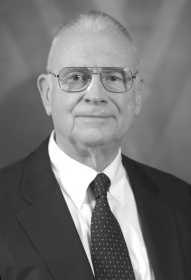How should the winners govern?

When I first went to Washington in the 1960s as a novice congressman, the Democratic Party was clearly in control. It held the White House and enjoyed big majorities in both houses of Congress.
So big, in fact, that a sizable group of Democratic politicians argued that when it came to crafting legislation, the most important value was to attain large majorities and push through an ideologically pure agenda without even consulting the minority. Compromising in order to get Republican votes would mean surrendering core principles.
This might sound familiar to you. Although today, of course, the positions are reversed: it's the Republicans in Congress and on the stump who argue that sticking to core principles ought to be their highest priority.
Political campaigns are not just about who will govern, but also about the candidates' vision and how they plan to achieve it. This is not the first time in our history that two very different approaches to wielding power were on offer.
The first has characterized most of our nation's history: a willingness to engage in robust debate over competing ideas, work across ideological divides, negotiate differences, seek consensus, and above all find a way to strike a deal and move forward. Its emphasis is on problem-solving and finding workable solutions to the great problems that confront our nation.
Its motivating philosophy is that politicians' ultimate responsibility is to make the country work -- not merely to satisfy their own, partisan beliefs. It is what has made possible most of the great pieces of legislation that have shaped this nation -- everything from rural electrification to federal highways.
In recent months, the U.S. Senate has moved toward this approach, voting to overhaul the U.S. Postal Service, fund transportation programs, confirm judges and in other ways try to make government work.
The other approach has been on view more often than not in the House, and was prominent in the Indiana Republican primary that recently ended in the defeat of Sen. Richard Lugar. It holds that in order to achieve policy goals it's crucial to purify the party, purge it of moderates, and work hard to reach overwhelming, possibly even permanent, political victory.
It rests on a belief that the political philosophies at large in the country right now are irreconcilable, and that reaching a compromise in the interest of moving legislation is impossible without betraying core principles.
In this view, Washington does not need more collegiality, it needs less. It does not need cooperation, but confrontation. It needs purists who will stick to their fundamental beliefs, do their best to keep winning elections, and ultimately control the White House, the House and a filibuster-proof majority in the Senate.
This is not an irrational or illegitimate approach to governing. There are plenty of politicians of both major parties who have, at one time or another, advocated this approach.
But there's a practical problem with it: It is very hard to make work. The kinds of majorities that make ideologically pure legislating possible don't come along very often -- and when they do, they don't tend to last very long. The old catchphrase that "nothing is ever really settled in Washington" is true --because the political agenda is always changing.
Moreover, our system is designed to make it difficult for majorities to have their way. That's what the separation of powers is about, and the pivotal notion of "checks and balances."
Indeed, legislation that has bipartisan support tends not just to be more durable and of a higher quality than if it does not, it is also easier to implement. As a governing tactic, ideological purity has enormous practical difficulties.
Nonetheless, in the upcoming election these two approaches -- negotiation and flexibility vs. unyielding dedication to an ideology -- will both be part of the package of issues that voters must weigh. Which makes it crucial that candidates talk not only about policy, but also about process -- not only about where they want the country to go, but also about how they expect it to get there. Which approach do they favor? If they get into office, how will they govern?
Their answers will make a difference in how we as a nation tackle the challenges that confront us.
So as campaign season truly gets under way and the candidates who would represent you start showing up to ask for your vote, don't let them off the hook: Ask them not just what they want to accomplish, but how they'll go about it.
Lee Hamilton, a 1952 DePauw University graduate, is director of the Center on Congress at Indiana University. He represented southeastern Indiana as a member of the U.S. House of Representatives for 34 years.
